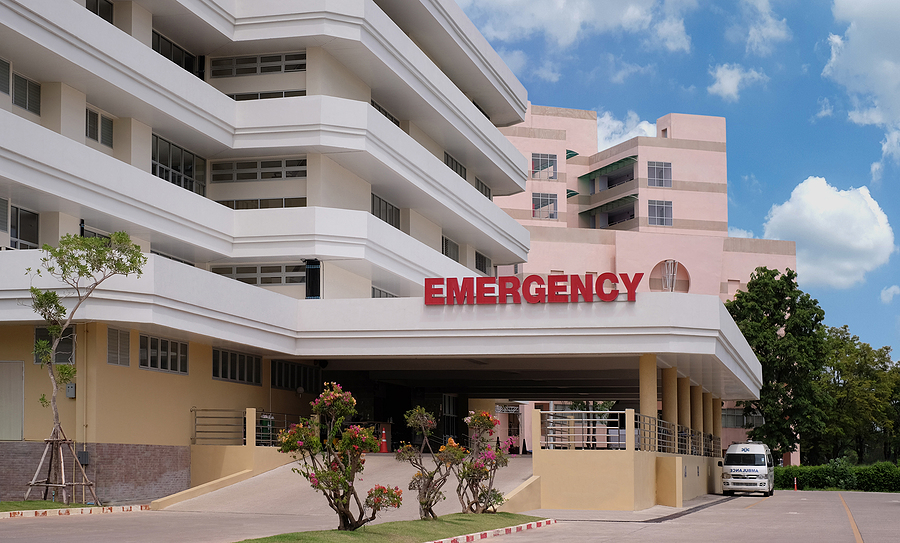
After a car accident, you should absolutely seek medical care.
Seeking medical attention is a vital step after your car accident occurs. With more serious car accident injuries, you may be taken away from the scene of the accident in an ambulance. Car accident victims with severe injury often require immediate care at the hospital. Severe accident injuries include spinal cord injuries, shattered bones, or amputations. With more minor injuries, you’ll be responsible for making sure that you receive medical care.
Each year, there are approximately six million car accidents in the United States. Out of those accidents, three million people are injured, and two million people experience permanent injuries because of the accidents they were involved in. Motor vehicle accidents frequently result in common injuries such as neck injuries, soft tissue damage, and other injuries that may not be immediately apparent. To reduce the risk of permanent injury, seek medical attention immediately.
Even severe injuries (like traumatic brain injury) may not present until a few days after the accident, as adrenaline may mask the pain you’re feeling. Neck pain and soft tissue damage are common injuries that can develop into chronic pain if not treated promptly. However, even if you’re not in pain after the accident, you still should report to the emergency room or your primary care physician or primary care doctor as soon as possible after the accident. Immediate medical care and immediate medical treatment are important for establishing the severity of injuries and supporting insurance claims. Immediate medical attention will not only help prevent any injuries from worsening. It will also prevent the insurance company from dismissing your claim.
If you wait too long to seek medical care after the accident occurs, the insurance company will try to argue that your injuries must not have been too severe. They can also say that your injuries may have been caused by something else not linked to the auto accident. To avoid these dismissive tactics, seek medical attention immediately after the accident. Remember, accident play—your actions immediately after the accident—can impact both your medical recovery and the outcome of your insurance claim.
Types of Injuries Commonly Sustained in Car Accidents
Car accidents can result in a wide range of injuries, from minor bruises to life-altering trauma. Some of the most common car accident injuries include whiplash, which often affects the neck and upper back due to the sudden force of a collision. Soft tissue injuries, such as sprains, strains, and contusions, are also frequent and can cause significant pain and limited mobility.
More severe injuries may involve broken bones, traumatic brain injuries, and internal injuries like internal bleeding or organ damage. Head injuries, including concussions and more serious brain injuries, can have lasting effects on memory, mood, and cognitive function. Back injuries, such as herniated discs or spinal cord damage, may require extensive medical treatment and rehabilitation.
It’s important to remember that some symptoms, like those from internal injuries or traumatic brain injuries, may not appear immediately after a car crash. Delayed symptoms such as headaches, dizziness, or abdominal pain should never be ignored. Prompt care and a thorough medical evaluation are essential for identifying and treating both visible and hidden injuries, ensuring the best possible recovery process.
Your Health History
You’ll want to make sure that you let your doctor know about your health history, including any significant injuries and surgeries you’ve had in the past and any chronic illnesses or diseases you have. If you have a heart condition, asthma, cancer (or have previously had cancer), these are all conditions that are important for your doctor to know.
Disclosing your health history to your doctor will not only help them better treat you. It will also help ensure that insurance companies can’t try to argue that your car accident injuries were because of pre-existing conditions. However, pre-existing conditions may make your injuries worse. For example, people with diabetes heal slowly and are prone to infection. Letting your doctor know about your conditions can help them watch out for any side-effects that may not have occurred otherwise. Untreated injuries or missing follow up visits can result in chronic pain, so it is essential to work closely with a medical professional throughout your recovery.
How You Were Injured in the Crash
You’ll also want to let them know how you were injured. When you arrive for treatment, don’t just say that it’s because your back is hurting. Tell your doctor that your back is hurting because of an accident you were involved in. Telling them how it happened—from what angle you were hit and what type of accident it was—can help them better treat you. Be sure to describe any specific injuries you sustained in the crash, such as knee, neck, or back injuries, to ensure you receive targeted treatment and accurate documentation. It will also better document your case. When your doctor is asked about your injuries during the discovery process, they can accurately describe how the car accident may have caused those injuries.
Immediate Steps: Dealing with the Other Driver
After a car accident, your actions at the accident scene can have a significant impact on your recovery journey and any future insurance claims. First, ensure everyone is safe and call emergency medical services if there are any serious injuries. Once it is safe to do so, exchange contact and insurance information with the other driver involved in the motor vehicle accident. Be sure to collect their name, phone number, address, driver’s license number, license plate, and insurance policy details.
Document the accident scene by taking photos of the vehicles, any visible injuries, and the surrounding area. If there are witnesses, ask for their contact information as well. Avoid discussing fault or making statements that could be interpreted as admitting responsibility for the accident. These details will be important when filing an insurance claim and can help protect your rights if you need to consult a personal injury lawyer later.
Gathering accurate information and evidence at the scene will support your case and help ensure a smoother recovery process, both medically and financially.
Your Treatment Plan
You’ll want to discuss during your first appointment what your medical treatment will look like. Your treatment plan may include a range of medical treatments, from physical therapy and medications to surgical intervention, depending on the severity of your injuries. Ensure that you stick to the medical care you’re given and follow up when necessary. Attending all follow up visits is crucial to monitor your recovery and allow your healthcare provider to adjust your care as needed.
Deviating from your treatment plan may lead the insurance company to believe that you aren’t taking your treatment seriously, and therefore your injuries can’t be that severe. For minor injuries, urgent care centers can provide prompt evaluation and treatment when emergency room care is not required.
Insurance and Financial Considerations
Navigating the financial aftermath of a car accident can be overwhelming, especially when dealing with medical bills, lost wages, and ongoing treatment costs. As soon as possible, notify your insurance company about the accident and begin the process of filing an insurance claim. Provide them with all relevant documentation, including medical records, accident reports, and evidence collected at the scene.
Keep detailed records of all medical expenses, including emergency room visits, imaging tests, physical therapy, and follow up appointments. These records will be crucial for your insurance claim and can help demonstrate the extent of your accident injuries. If your injuries prevent you from working, document your lost wages and any impact on your ability to earn income.
In many cases, insurance companies may attempt to minimize payouts or dispute the severity of your injuries. Consulting a personal injury lawyer can help you navigate these challenges, negotiate with the insurance company, and pursue compensation for your medical expenses, pain management, and other damages. Taking these steps will help you focus on your recovery progress and work toward a complete recovery after a car wreck.
If You Can Return to Work
With medical bills piling up, you’ll want to know whether or not you’ll be able to return to work. Ask them to give you a timeframe of when you may be able to return. However, know that it could change depending on how your recovery goes. If you are allowed to work, make sure you understand any limitations you may have. For example, you may not be able to lift over a certain weight or not stand for a certain amount of time.
You must be clear with them about the level of pain you’re feeling. That way they can accurately decide how long you should be out of work. Don’t lie about your pain level so you can return to work. This will only make things worse in the long run for both your injuries and your case.
Supporting your healing process with a healthy diet and activities that promote blood flow, such as gentle movement or massage, can aid in tissue repair and overall recovery.
When You are Projected to Recover
It’s crucial to arm yourself with the knowledge about your future, even if you don’t want to hear it. A clear understanding of your prognosis will help to fuel your determination to stay on track with your treatment plan. It can also help your personal injury lawyers better calculate your total damages.
Be Careful How Much You Tell Them
You have to remember that your doctor is still someone that can be deposed, interrogated, or called as a witness in your case. That means you shouldn’t tell them anything that may contradict what you’ve said to your attorney. Stick to only your case’s facts and don’t admit any fault when speaking about the accident.
Contact a Car Accident Attorney
If you or someone you love has been injured in an auto accident, please contact our talented team of attorneys here at The Eberst Law Firm. With offices in Stuart, Gainesville, and Daytona Beach, Florida. We’re ready to help you get the most compensation possible for your case. Our years of experience will prove invaluable to your claim and quality of life. For more information, please contact us using our chat box option or by calling us at (772) 225-4900.
